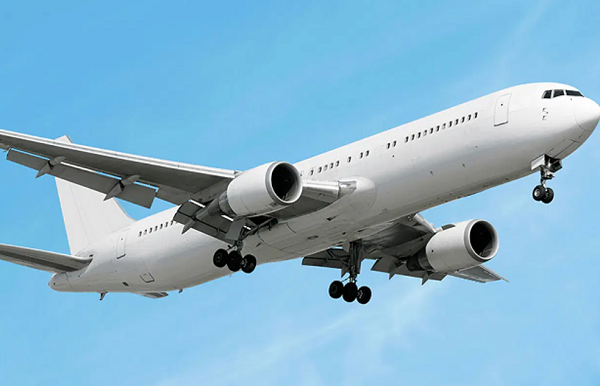Air fares within West Africa's subregions remain the world's highest scope, as they are the economic community of West African States for infrastructure, energy and digitalization (ECOWAS) committees, Douka said.
Douka also found that a study conducted by a well-known organization shows that air transport within West Africa is still under 10%, indicating that this is the lowest.
He said the situation has become a barrier to regional integration.
Douka spoke yesterday at the opening of the Sixth Parliament ECOWAS Parliament in Rome. Meeting and theme of the Joint Committee on Infrastructure, Energy, Mining, Agriculture, Environment and Natural Resources: Air Transport as a means of integrating people in West Africa: Strategies to reduce air ticket costs.
He said ECOWAS leadership was concerned with the situation and therefore urged the committee to coordinate and harmonize member states' air transport policies, programs and projects.
He emphasized the importance of the Rhom Conference to address the gap, revealing that the conference has the blessings of the head of state and government.
He said: “The air tariffs in West Africa remain excessively high compared to other countries around the world. In this case, flights to another African country is cheaper than moving between two Ecowas countries. This situation is counterproductive to the future of the West Africa region and collective space.
“A recent study conducted by a well-known organization in 2024 shows low growth in air transport in West Africa (less than 10 percent), when, for example, it recorded 40.4% in North Africa, 21.4% in South Africa and 20.5% in East Africa.
Other comparisons made regarding domestic flights, African travel, major airlines and airport sizes show that West Africa falls behind these same regions above.
“According to Article 32 of the revised ECOWAS Convention, statutory bodies mandate the committee to coordinate and harmonize the air transport policies, programs and projects of Member States, as well as contribute all initiatives, strategies and plans of action aimed at improving air transport within the territory.
“In this context, in 2017, the ECOWAS Commission worked with member states to conduct a survey on general policies regarding air transport fees, taxes and claims, with its final report being submitted in Accra in 2018.
“This policy was reviewed through a verification workshop held by experts and ministers responsible for air transport from member states in May 2021. A task force was subsequently created to reflect fees, taxes, claim status, and recommendations for total reduction or reduction of certain taxes and claims.
Furthermore, during the regular session of the 65th National and Government Authority held in Abuja, Nigeria on July 7, 2024, Ekowas Heads of State and Government pointed out the need to make air transport costs more accessible and affordable by reducing the costs of air transport to support the regional integration agenda.
“In response to this direction, a meeting of ministers in charge of air transport was convened here in Lome on November 8, 2024. The meeting ended with a modality for gradually reducing taxes, fees and fees aimed at making air transport more affordable. It was submitted to the ECOWAS Heads of State and Government meeting on December 15, 2024, and supported them.
“Our main concern is to adhere to ICAO principles and pricing recommendations: non-discrimination between users, transparency, proper pricing for services offered, and user consultation.
“The recommendations made by the Minister to Member States for efficient regional air transport are, among other things: I commit to eliminating all taxes in accordance with these ICAO principles and recommendations.
“We will reduce passenger service fees and security fees by 25%. We will reduce the cost of aviation fuel.
“This aims to make our area efficient from an air transport perspective, along with 400 million residents.”
He also urged the meeting to consider issues of general regulations regarding passenger compensation in the event of denying boarding, cancellations or significant delays within the ECOWAS area.
He added: “We are currently working towards implementing these community texts by ECOWAS Member States. Such implementation start dates are set for January 1, 2026, a 15-month period that will allow us to prepare, particularly from a budget perspective.”
ECOWAS committee member also told legislators that the area expects the state to “actually participate in the development, review and adoption process and implement the community texts that it has participated in.”
He therefore urged “to be strongly involved with Member States to raise awareness about the implementation of these additional actions, given the sustainable development of air transport in West Africa.”
“It's the right time to highlight the visibility of the organization as Ecowas celebrates its 50th anniversary. Many achievements have been made in various areas/sectors of regional integration, but these are little known to the public, either because of consciousness, communication, or simply because of the highly political orientation given to the Visions perspective, given the vision of Ecowas. Challenges, problems, strengths/weaknesses, opportunities/threats, sectoral outcomes,” he added.


